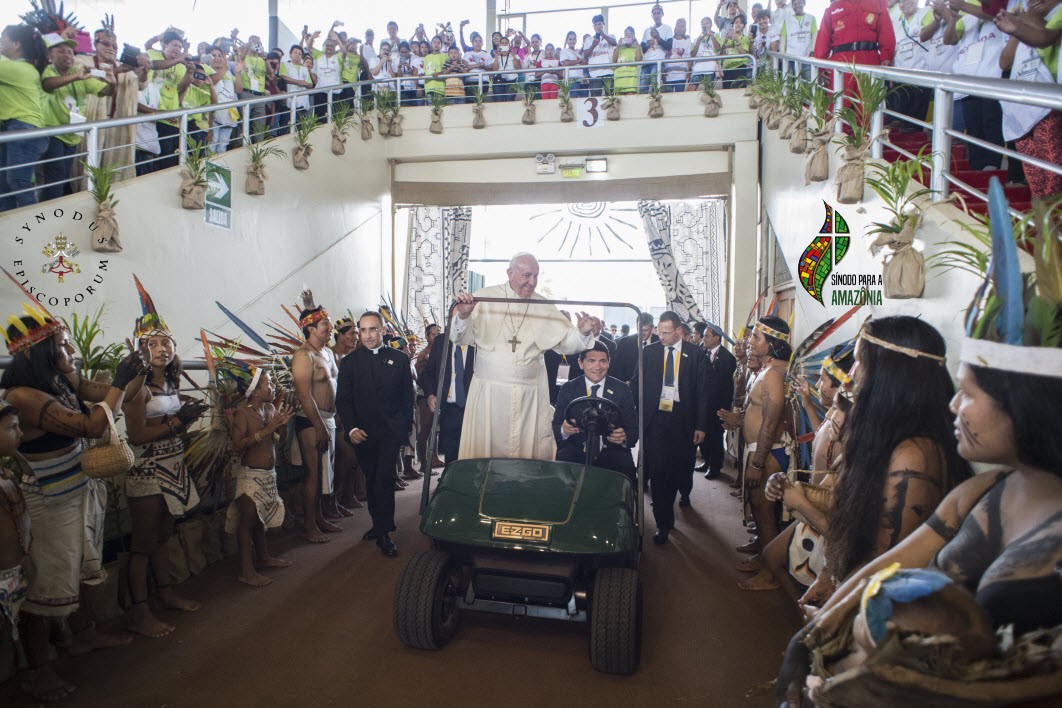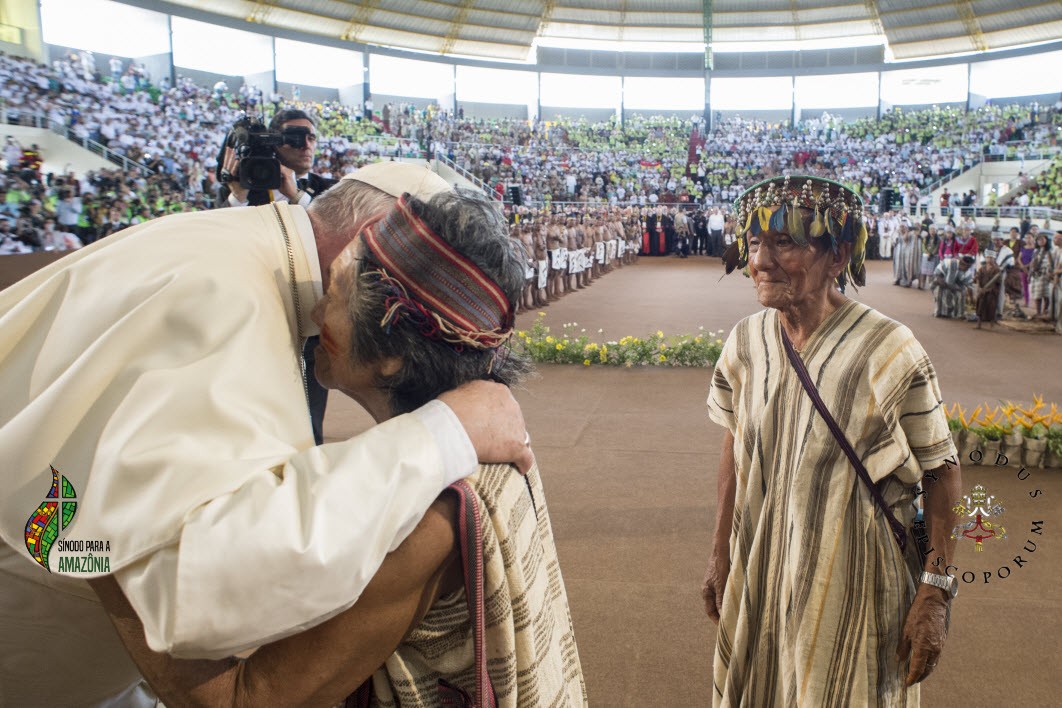Pope Francis’ “great dreams” for the Amazon region

Pope Francis’ “great dreams” for the Amazon region
Pope Francis’ thought on the region: concrete steps toward a human ecology which takes the poor into consideration, toward the appreciation of the local cultures, and toward a missionary Church with an Amazonian face.
By Andrea Tornielli
“Dreams are a privileged place to seek after truth.... Many times even God chose to speak through dreams.” These are the words Pope Francis spoke in a homily during Mass at the Casa Santa Marta in December 2018. He was referring to St Joseph. This is the silent and concrete man who can help us understand Pope Francis’ thought regarding the Amazon region expressed in the Post-Synodal Apostolic Exhortation. This text is written like a love letter in which not only poetic citations abound, but also the daily drama of the region. Why did the Bishop of Rome wish to give universal value to a Synod which was focused on a particular geographical region? What does the Amazon and its destiny have to do with us?
We find the response running through the pages of the Apostolic Exhortation. The most obvious answer is that everything is connected: the balance of our planet, in fact, depends on the Amazon’s state of health. Since the care of those living there and that of the ecosystem cannot be separated, neither the destruction of the wealth of the peoples living there, nor the culture of the indigenous populations, nor the devastation or politics regarding extractive industries that are destroying the forests, should leave us indifferent.
But there is another universal element about the Amazon region. In some way, the dynamics manifesting themselves there anticipate the challenges already knocking at our door: the effects of a globalized economy and of a financial system less and less sustainable by so many people as well as the environment; the co-existence of peoples and cultures which are profoundly different; migration; the need to care for creation which risks to be irreparably wounded.
The Querida Amazonia, to whom Pope Francis’ love letter is addressed, represents above all a challenge for the Church which is called to find new paths for evangelization, proclaiming the heart of the Christian message, that kerygma which makes present the merciful God who so loved the world that he sacrificed his own Son on the cross. Humanity in the Amazon is not the illness that needs to be combatted in order to care for the environment. The original peoples of the Amazon region, their cultures and traditions, need to be conserved. But they also have the right to the evangelical proclamation. They are not excluded from mission, from the pastoral care of a Church who has been well represented by so many missionaries of old, their faces burned by the sun, who were capable of passing day after day in canoes for the sole purpose of meeting small groups of people to bring God’s tenderness together with the regenerating comfort of his Sacraments.
Pope Francis’ Apostolic Exhortation demonstrates a thought that supersedes the dialectical diatribes which ended up representing the Synod as a referendum on the possibility of ordaining married men. This topic has been discussed for a long time and may continue to be discussed in the future because, “perfect and perpetual continence" is “not demanded by the very nature of the priesthood”, as the Second Vatican Ecumenical Council stated. On such questions, the Successor of Peter, after praying and reflecting, has decided to respond not by foreseeing changes or further possibilities of exceptions from those already provided for by current ecclesiastical discipline, but by asking that the essentials be the starting point. He asks us to begin again with a vivacious and incarnated faith, with a renewed missionary thrust rooted in the grace that allows room for God to act rather than on marketing strategies or the communication technologies relied on by the religious influencers.
“Beloved Amazon” invites a “specific and courageous” rethinking of the local Church’s organization and ecclesial ministries. It asks that the entire Catholic Church pick up its responsibility, that it might assume as its own the wounds of the Amazon’s peoples and the hardships of those communities deprived of the Sunday celebration of the Eucharist; that it might respond generously by sending new missionaries who appreciate all of the gifts of the Spirit; that it focus above all on new services, and stable, ecclesiastically recognized non-ordained ministries which can be entrusted to the laity—men and women. Specifically highlighting the irreplaceable contribution of the latter, Pope Francis recalls that, in the Amazon region, the faith has been transmitted and maintained alive thanks to the presence of “strong and generous” women “even though no priest has come their way”.
(source: VaticanNews)





